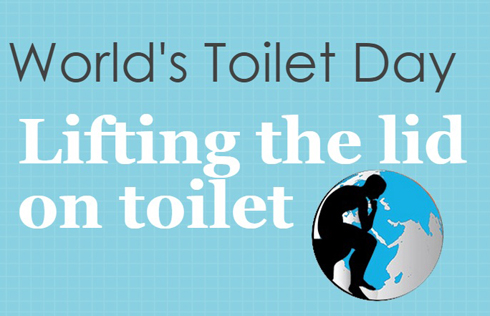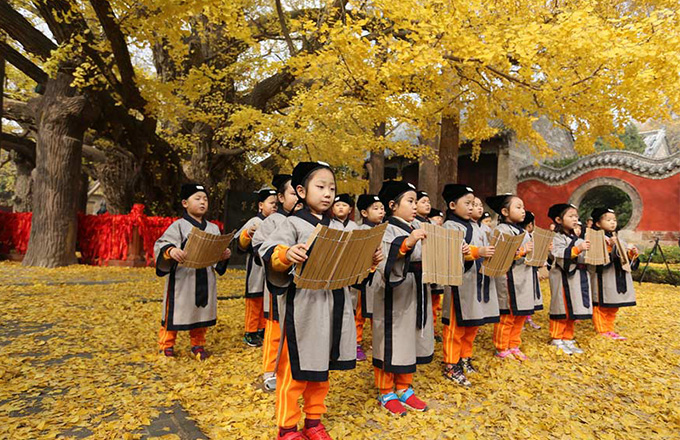Hospital reforms begin to take effect
For 58-year-old housewife Ma, Beijing's public hospital reforms have so far worked out pretty well.
"It's definitely reduced the cost of the medicine," said Ma, who asked not to be identified. Every month she visits Tongren Hospital to collect her father's prescription for a cardiovascular condition.
"I used to pay 500 yuan ($80) each time, but now it's gone down to just 400 yuan," she said.
The capital began piloting its reforms in July, which has so far seen five hospitals scrap the usual 15 percent markup on drugs and instead make up the difference by increasing the fees to see a doctor.
Friendship Hospital in Xuanwu district slashed the cost of medicine, but began charging a minimum of 42 yuan for consultations, with the option to pay 60 yuan, 80 yuan or 100 yuan depending on the doctor's level of experience. Before the reform, consultations cost around 5 to 14 yuan.
When Ma and her husband visited Chaoyang Hospital, another pilot hospital, four times in November for tests on his digestive system, she said they always chose to pay 100 yuan to see a specialist.
"We wanted the best experts to make the diagnosis. I have more faith in what they say," she said. "Nevertheless, it is a little expensive for us working class people."
Being registered residents of Beijing, Ma, her father and her husband, are all covered by the city's healthcare insurance fund, which pays 40 yuan of any consultation fee. It means residents who opt for the cheapest doctors pay only 2 yuan.
People such as Zhang Zhanhua, however, are not finding the reform so affordable.
The 40-year-old lives in Hebei province, but for the past two years she has been regularly traveling to Beijing's Tiantan Hospital to get treatment for a sleeping problem. The hospital, which is renowned for its work in the field of neurology, began its reform on Dec 1.
"It used to cost me 7 yuan to see the doctor. Now suddenly I have to pay 60 yuan," Zhang said, explaining that the health insurance fund in her native city — Baoding in Hebei — does not reimburse residents for costs incurred in the capital. Almost all outsiders have the same problem.
Although the amount Zhang pays for medicine has dropped, she said the hike in the consultation fee has made her treatments much more expensive.
The effect of these reforms may be a decrease in the number of such people visiting the capital's public hospital, if Chaoyang Hospital is any indication.
"Since we started the reform (on Sept 1), we've noticed that some patients not covered by the city's health insurance program, such as migrant workers, particularly those with minor ailments, have turned away from us in favor of other, cheaper clinics," said Chen Yong, president of the hospital.
Changing roles
One of the goals of the reform was to encourage more patients to consider visiting grassroots clinics rather than head for large hospitals, which are perceived as offering a better standard of care.
Whether that actually happens remains to be seen.
Although there has been a drop in people outside the insurance program arriving at Chaoyang Hospital, Chen said it is attracting even more people covered by the capital's health insurance fund, most of whom are simply paying 2 yuan out of their own pocket to get cheaper prescriptions.
Liu Jian, a board director at the Friendship Hospital, said he has noticed a similar trend. He attributes the extra patients to the fact that his hospital's medicines are less expensive than most others in the capital.
Large hospitals usually provide insured patients with better and more expensive medicines, which grassroots hospitals do not have or can only sell at full price, so many chronic patients tend to get regular prescriptions there, added Zhang Qingyu, director of Tongren Hospital's medical insurance office.
However, Liu said he hopes large hospitals and community healthcare centers can take on different roles in the future. "In the long run … people should go to community centers if they have slight, common or chronic health problems. Large hospitals should focus on urgent, complex or critical problems," he said.
Zhang agreed and added: "It's like shooting mosquitoes with a cannon if large hospitals spend too much effort on treating patients who just need prescriptions."
- Rural doctors pressured by medical reform
- Investment, innovations urged for China's medical reform
- Medical reform plan to cover serious illnesses
- Hospital agency to push medical reforms
- Medical reform challenges remain
- 311 counties to pilot China's hospital reform
- Public hospital reform begins in counties

























